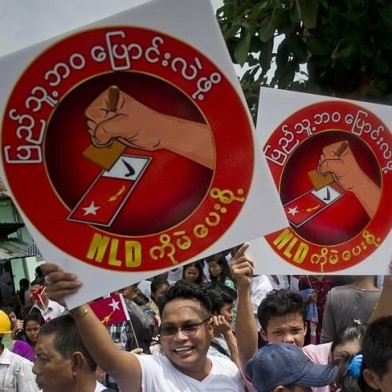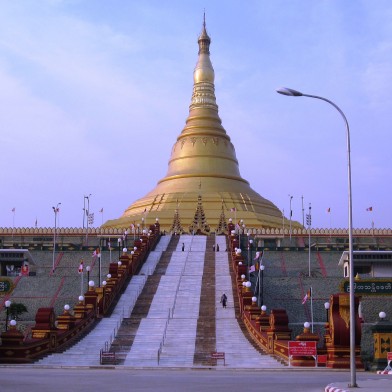After two months of ostentatious threats and displays of military power about alleged election fraud in Myanmar (the general election was held on 8 November 2020), on 1 February 2021 Senior General Min Aung Hlaing staged the country's latest coup. It saw democratically-appointed leader Aung Sang Suu Kyi detained and full control taken over by the military.
As Myanmar goes back to military rule, Min Aung Hlaing asserts his position as top dog in the nation. However, his ascent to power has been more than a decade in the making, since he became commander of the Bureau of Special Operations-2 in 2009. Prior to that, he was a nondescript infantryman (foot soldier) and former law student. It took Min Aung Hlaing three attempts to be accepted into the Defence Forces Academy.
Now, the 64-year-old is commander-in-chief of Defence Services in Myanmar. Last week, he invoked powers based on Section 417 of the 2008 constitution (drafted by the military) that makes it possible for the person holding his job to create an instant dictatorship with full legal, judicial, and executive powers. When a military coup takes place, the leading form of government is called a junta.
Much of the Western world assumed Myanmar was wholly focussed on its Covid-19 response, so this coup d'état came as quite the shock outside of the Asia region. More confusing the world, additionally, was just who this new junta chief was. So who is Min Aung Hlaing?
Min Aung Hlaing has been appointed Myanmar’s interregnum (gap period) leader for the next 12 months, but historic precedents from other coups suggest it will be longer.
Min Aung Hlaing was in line to be president during the last junta in 2011 (when he became commander-in-chief), but the junta was dissolved, and Myanmar transitioned to a democracy. Later, the historic 2015 election victory for the National League for Democracy (NLD) brought Aung San Suu Kyi to de facto power instead (though she was barred from becoming president).
According to The Guardian, “With Aung Sang Suu Kyi as the de facto head of state, Min Aung Hlaing appeared to become more publicly involved in politics.” He amassed hundreds of thousands of followers on social media, but his accounts were removed from Facebook and Twitter after the army’s persecution of Rohingya Muslims.
In 2017, more than 750,000 Rohingya were forced to flee to neighbouring Bangladesh, making worldwide headlines. The Guardian reported “United Nations investigators said Myanmar’s operation included mass killings, gang-rapes and widespread arson and was executed with ‘genocidal intent’.”
The US imposed sanctions on him and three other military officers in 2019. Min Aung Hlaing’s US-based assets were frozen and the US banned doing business with him, then in July 2020, Britain also imposed sanctions on Min Aung Hlaing, “accusing him and his deputy army commander, Soe Win, of orchestrating systematic violence against the Rohingya”, said The Guardian. It should be noted, the Hlaing family have reportedly accumulated massive wealth through domestic and foreign investments in the last decade whilst Min Aung has been a man of considerable power.
Min Aung Hlaing was wildly uncooperative with the civilian government. He was resentful of Aung San Suu Kyi’s popularity, and tensions arose further when the military-backed Union Solidarity and Development party (USDP) sorely lost in the November 2020 general election, humiliating the party. A landslide win for Aung San Suu Kyi was challenged with allegations of voter fraud. A recount was demanded. Generals’ retirement age in Myanmar is 65, so Min Aung Hlaing will reach mandatory retirement age in July, proposing speculation his coup was a good way of him staying in office.
What is his personality like? According to Nikkei Asia, "the senior general is not a listener -- he talks and others listen," Nicholas Coppel, Australia's former ambassador to Myanmar, told Nikkei Asia. Coppel had a number of formal meetings with the senior general in the capital, Naypyitaw. "This big man management style is conducive to ignorance and arrogance," he added, noting "the isolation that comes from being at the top."
Nationwide peace as a precondition for returning to civilian rule could take decades to attain, said Nikkei Asia. Although further mistreatment of Suu Kyi could “spark civil unrest”, it “risks playing into Min Aung Hlaing's hands”. “If there is civil disturbance, that could be a pretext for the military to stay for a far longer period,” Coppel told the Australian Broadcasting Corporation.
While Min Aung Hlaing officially will be in control for just the next year, one of his military predecessors, General Ne Win, was in power for 27 years after his coup in 1962. Ne Win retired in 1988.
- Asia Media Centre


